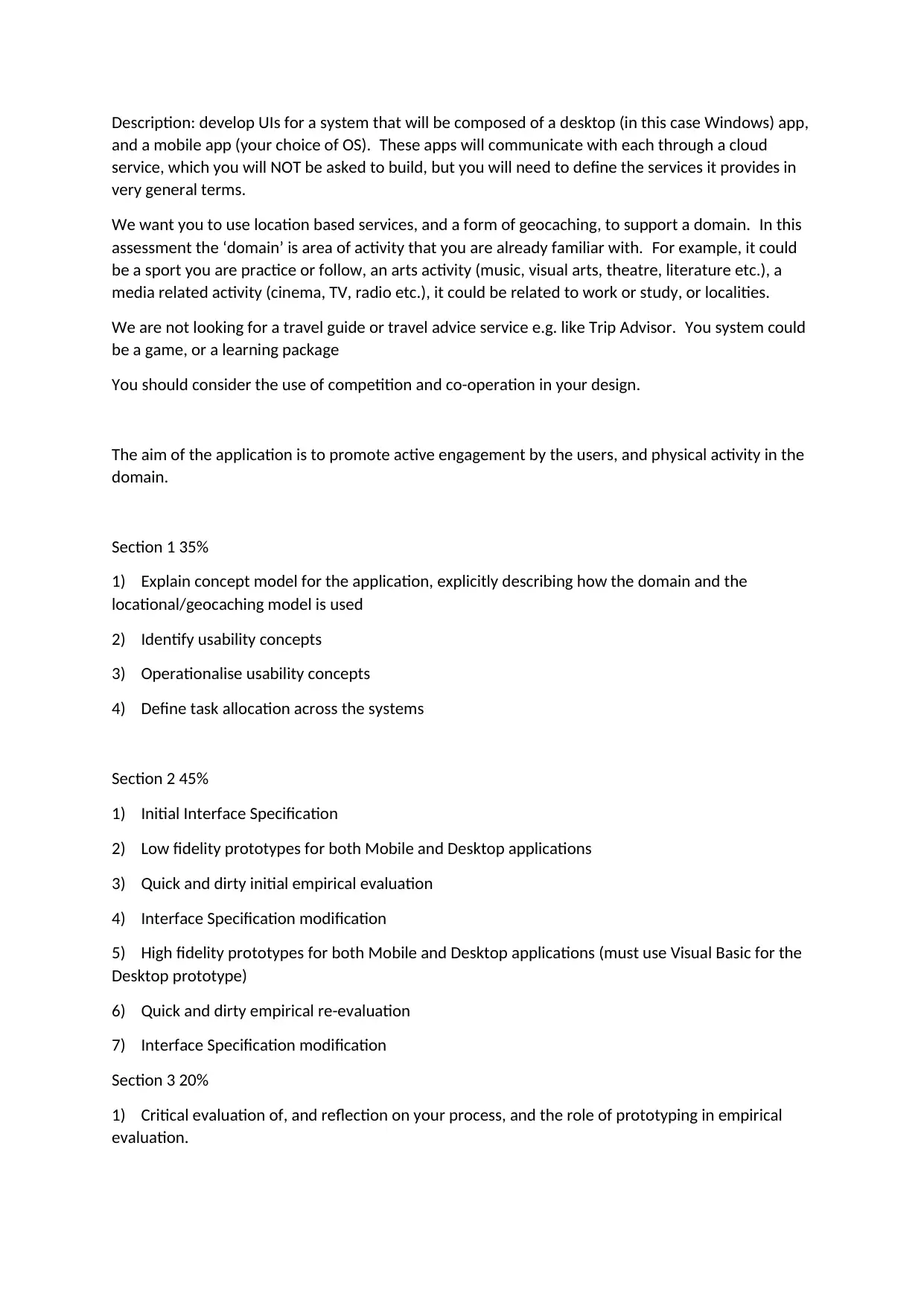Designing Geocaching Applications for Informal Learning
VerifiedAdded on 2019/09/18
|4
|1341
|550
Project
AI Summary
The assignment is to develop high-fidelity prototypes for two user-facing applications: a PC-based application and a mobile device application. The applications will communicate with each other through a hypothetical server, allowing users to share information and engage in social networking activities. The main goal is to design UIs that support informal learning and community engagement in an outdoor setting using geocaching principles. Students are required to choose a domain of interest (e.g., cultural heritage, language learning) and apply user-centered design methodology to explore the potential of cross-platform technologies for supporting informal learning.
Contribute Materials
Your contribution can guide someone’s learning journey. Share your
documents today.
1 out of 4
![[object Object]](/_next/static/media/star-bottom.7253800d.svg)









